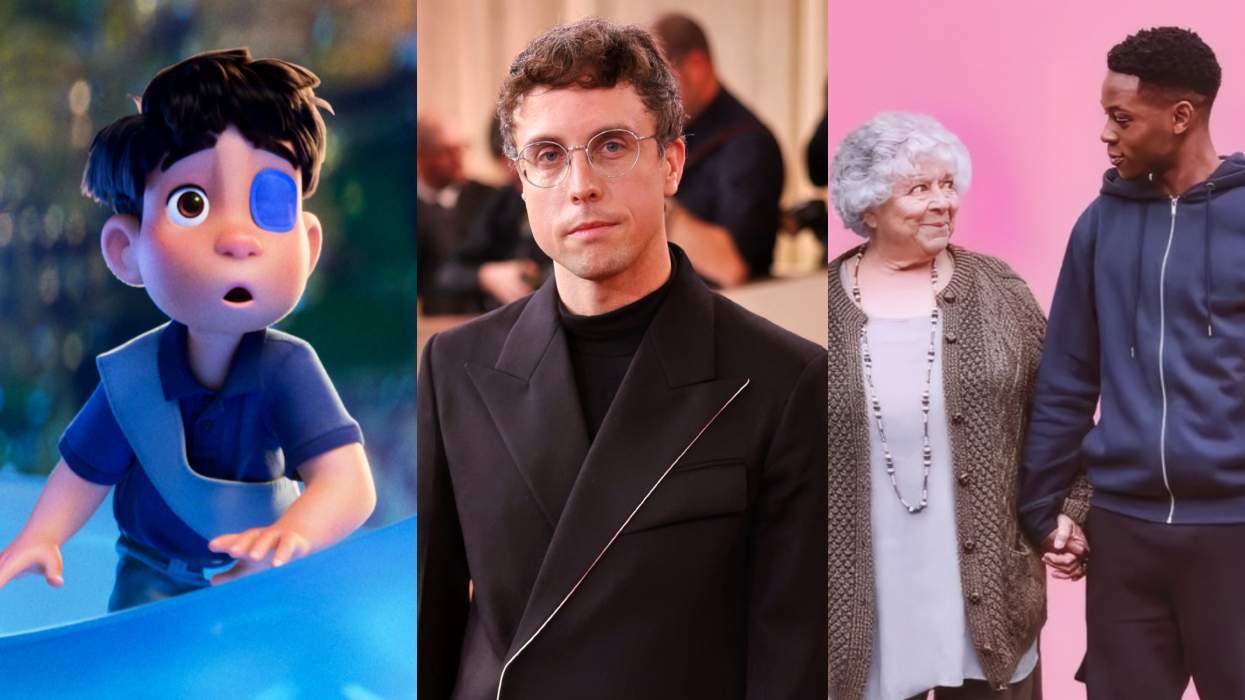Allegations of sexual misconduct leveled at powerful Hollywood players and the #MeToo movement have irrevocably altered the 2018 awards season.
A year ago, Brie Larson was the lone holdout refusing to clap for Best Actor Oscar-winner Casey Affleck even as she was in the position of handing the statue to the actor who'd been sued by two women for some gnarly acts of sexual misconduct. But there will be no trace of Affleck at this year's ceremony despite the tradition of the previous year's Best Actor doling out the award to the current Best Actress, and vice versa.
Prior to the purging of sexual harassers and abusers in the fallout of the Harvey Weinstein scandal, the likes of Kevin Spacey and James Franco may have had a shot at Oscars this Sunday, but they've been effectively locked out of the celebration in various ways. And in regard to Franco and Spacey, the powers that be broke with centuries of turning a blind eye to the bad acts of creative geniuses, and there was no attempt to separate the art from the artist.
The driving force behind his passion project The Disaster Artist, Franco is the film's writer, star, and producer, and inextricable from the work. Just six weeks ago he took home the Best Actor Golden Globe for the film, but following allegations of serial predation, Academy Awards voters took note and failed to even nominate him.
Meanwhile, Spacey, whom dozens of men (some underage at the time of the incidents) accused of harassment or abuse, was entirely expunged from the film All the Money in the World and replaced over a 10-day shoot in November with Christopher Plummer, who earned a Best Supporting Actor nomination for the role.
The history of horrible people creating some of the most influential art, music, and literature is long and varied. Poet T.S. Eliot and painter Edgar Degas were anti-Semitic, Lord Byron committed incest, Madame Bovary author Gustave Flaubert paid for sex with underage boys, and Charles Dickens was a notoriously neglectful, awful husband and father, according to the 2012 New York Times piece "Good Art, Bad People." But now is a time of reckoning, and geniuses no longer get passes for being abhorrent people by virtue of their contributions to art.
For some, it's crystal clear that someone like Roman Polanski, the auteur of some of the greatest films of the 20th century like Knife in the Water, Repulsion, Rosemary's Baby, and Chinatown, who committed heinous acts of rape and abuse, should be boycotted -- that his contribution to the language of film can't outweigh his crimes. But others, like button-pushing feminist theorist Camille Paglia, stand by the art despite the man.
"No sin or crime by Polanski the man will ever reduce the towering achievement of Polanski the artist," Paglia wrote in a piece for The Hollywood Reporter this week in which she asserted that the current environment of #MeToo is an "Open sex war -- a grisly death match that neither men nor women will win."
On the flip side, author and cultural critic Roxane Gay argued against weighing the art against the bad acts of the artist.
"We can no longer worship at the altar of creative genius while ignoring the price all too often paid for that genius," Gay wrote in Marie Claire. "It is not difficult to dismiss the work of predators and angry men because agonizing over a predator's legacy would mean there is some price I am willing to let victims pay for the sake of good art, when the truth is no half hour of television is so excellent that anyone's suffering is recompense."
Even if one vehemently disagrees with Paglia and believes that the crimes of the artist can never outweigh the worth of the art, other factors can make firm decisions about who and what to patronize difficult.
In the case of Polanski, there's no dispute about his guilt or the insidiousness of his having drugged and raped a 12-year-old girl. Regarding his art, his signature and fetishes are all over his films, making them indisputably his. But it's tougher to know where to draw the line when the bad person is not the auteur but one piece of an ensemble that includes background actors, lighting and costume people, grips, productions assistants, and so on.
Viewers opposed to supporting serial sexual abusers could choose to boycott the first several seasons of House of Cards, in which Spacey plays the serpentine lead, and then opt to begin watching the show when Robin Wright steps in as the star (as confusing as that would be in terms of understanding the plot). But then there's the question of what happens when a piece of art's social relevance affects entire groups of marginalized people in terms of representation.
Stream or pop in the DVD for Carol, the critically -acclaimed love story between 1950s-era women directed by Todd Haynes and starring Cate Blanchett and Rooney Mara, and before the first pristine shot of the film appears on screen, the logo for the Weinstein Co. pops up. And if that weren't enough to throw someone out of the narrative before it begins, block letters then announce "The Weinstein Company presents..."
But Carol, a hopeful lesbian-themed love story with a gay director at the helm, a screenplay from out writer Phyllis Nagy, produced by one of the mothers of New Queer Cinema, Christine Vachon, and source material from queer writer Patricia Highsmith, surely adds up to more than having the Weinstein name attached to it. Or does it?
Transparent is arguably one of the most influential, important pieces of art/entertainment in terms of not only representing transgender people on-screen but also in employing and giving voice to trans people behind the camera. Yet its Emmy-winning star, Jeffrey Tambor, was recently let go after an investigation into allegations he sexually harassed his assistant Van Barnes and actress Trace Lysette, both trans women -- members of the very group the show (and his character) represents. The series will go on without Tambor in the matriarchal lead role of Maura Pfefferman, but should viewers opposed to supporting harassers skip the first four seasons of the landmark series because of Tambor's presence?
Lysette, who has accused Tambor of making lewd comments and of rubbing his genitals against her on the Transparent set, wrote in Variety this week about the show's significance and the struggle she faced in coming forth about the harassment.
"The trans inclusivity of our set was unparalleled at the time. For someone like me who came from living a complex and compartmentalized life of not fully embracing my trans identity out loud and proud, it was a very liberating place for me," Lysette wrote. "This dream was tainted that day on set during season two [when Tambor harassed her]. The world I came from was a world of hiding my transness; I had been liberated by this project only to be sexualized and victimized again."
But Lysette emphasized that the show is in so many ways bigger than the harassment at the hands of Tambor. "In spite of this event I hope people can still understand how important this show is," she wrote.
The question of separating the art from the artist isn't cut-and-dried for Lysette's costar Alexandra Billings, who overheard Tambor make sexually suggestive comments to her friend and costar. Without speaking specifically to whether or not viewers should choose to watch Tambor's episodes if they find his actions reprehensible, she told The Advocate of her own conflict with bad men and their art.
"I have watched Roman Polanski's films. I have stopped, but I have to admit, I have indeed seen them. I cannot say I will never again watch American Beauty because of what I believe is Kevin Spacey's repugnant behavior," Billings said. "I cannot say I will never look at anything Weinstein ever produced or listen to anything from the brain of Russell Simmons or Louis C.K. or even Bill Cosby."
Billings went on to speak to the collaborative nature of so much art and how it's typically never one person impacted by the crimes of bad people and the subsequent choice of consumers to boycott.
"You see, there are other humans involved here. When I don't watch old films or shows or I don't buy CDs, I am denying work to all the other humans these predators have also harmed: costars, stagehands, sound engineers, backup singers, dancers, producers, writers," Billings said. "I cannot nor do I want to be responsible for creating even more trauma than has already been created. So I hang a little in the balance."
The Oscars will come and go this Sunday likely amid a sea of pins depicting Time's Up -- the legal defense fund to stop sexual predators across industries -- a flurry of political speeches, and various shows of solidarity with victims of abuse. But on some level, change has already occurred with Affleck shamed from returning to the stage where one year ago he collected his gold statue despite the stories that abounded about his sexual predation. And Oscar voters already refused to support Franco following the stories of his misconduct.
While Billings carefully considered the collaboration of so many people behind a work of art or entertainment, she also acknowledged that lines must also be drawn in order for change to occur.
"If someday, these humans who have committed these foul and repellent acts against other humans ever come through their own rage and ego and cowardice and shame and take ownership of what they've really done and to whom they've really done it, I will gladly bring them all back in to the center of my artistic soul," Billings said. "But until that time, it is a revolution of truth, of admonishment, and of admission that is needed."
















